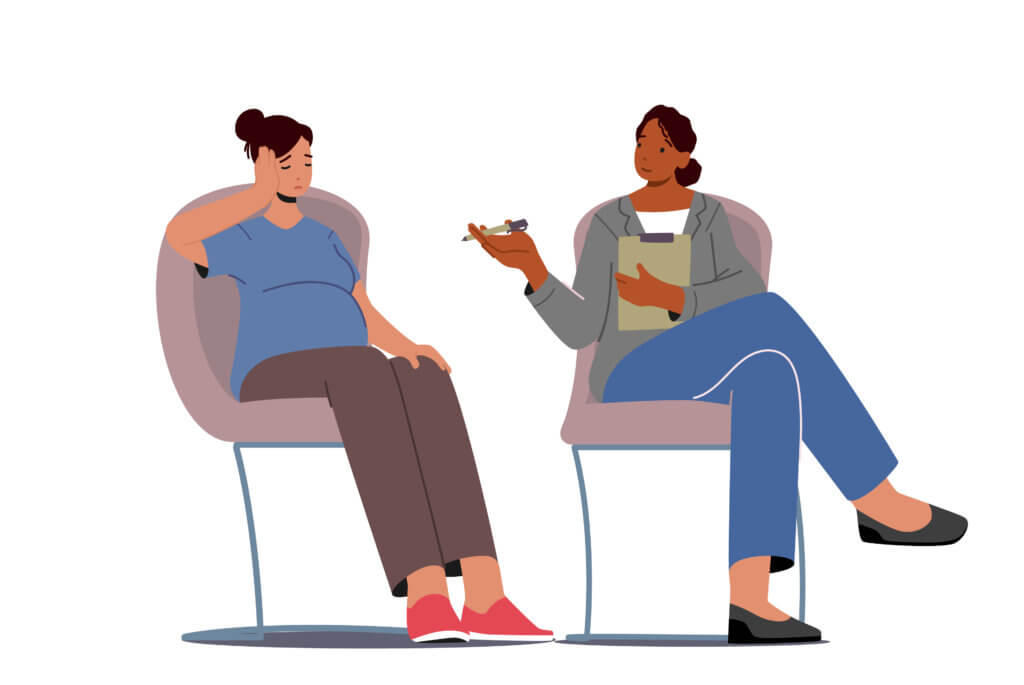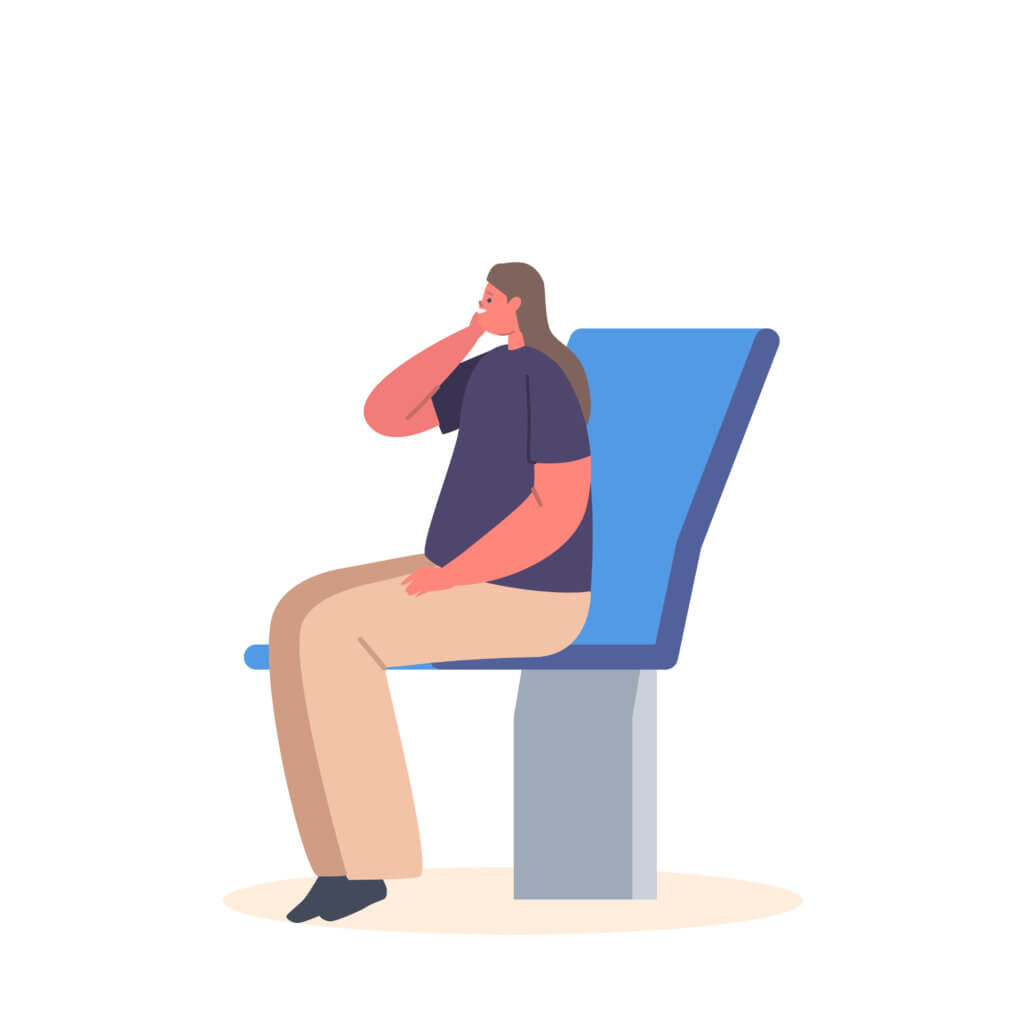Anxiety disorders are common mental health conditions that affect one in every eight adults in the United States. If you’re struggling with anxiety, it can be hard to know where to turn for help.
Information to Share With Your Doctor About Your Anxiety
When it comes to how to talk to your doctor about anxiety, it’s important to be organized and prepared. To help you get started, we have compiled a list of important information about your mental health to share with your doctor when the time comes.
1. How long have you been struggling with anxiety?
How long you have been struggling with anxiety will be one of the most important pieces of information for your mental health professional to know. It is generally accepted that an anxiety disorder can develop as a result of genetics, environmental factors, and life experiences.
2. What are your current symptoms?
When you meet with your psychiatrist, it’s important to be as specific as possible about your mental and physical symptoms. While anxiety is a general term, there are many different types of anxiety disorders – such as social anxiety disorder – and they can have very different symptoms. As such, It’s essential that you give a detailed description of your symptoms to your doctor, especially if you have been experiencing them for a long time.
If you’re unsure of the exact name of your anxiety disorder, it can be helpful to bring along a list of the signs and symptoms to help your doctor get a better idea of your condition.
Some of the most common mild to severe anxiety symptoms include:
- Nervousness
- Restlessness
- Tingling in the extremities
- Fatigue
- Insomnia
- Depression
- Muscle tension
- Blurred vision
- Chest pain
- Difficulty concentrating
- Agitation
- Shortness of breath
- Sweating
- Nausea
- Abdominal pain
- Palpitations
- Dizziness
- Hot flashes
- Chills
- Paranoia
- Suicidal or Intrusive Thoughts
3. What medications or other treatments have you tried?
If you’ve tried medications for your anxiety in the past, it’s important that you share this information with your doctor. In addition to sharing what medications you have tried, it is also important that you share the dosages that you have prescribed as well as the length of time that you took these medications. Be sure to include any herbal supplements you have been taking, as some supplements such as Ginko Biloba or St. John’s Wort can interact with other medicines and may cause health problems.
4. What side effects or outcomes did you experience from these medications?
Your doctor will want to know about any side effects and treatment outcomes (positive, negative or neutral) that you experienced when taking medications for your anxiety.
5. Have you used or are you currently using recreational drugs?
Oftentimes, people with social anxiety will use recreational drugs as a sort of medication to treat their anxiety disorder. When someone drinks alcohol or abuses other drugs like marijuana or benzodiazepines, it may temporarily relieve some of their anxious feelings. However, drugs are not a long-term effective treatment when they are not prescribed medicine, and they may lead to more severe anxiety, depression, and substance abuse.
6. What type of talk therapy have you tried?
Therapy has been shown to be very effective at treating anxiety. However, there are many different types of therapy available, each with its own unique benefits. Be sure to discuss with your doctor what types of therapy you have tried in the past.
7. What type of treatment would you like to learn more about?
If you’ve done your research and you’re curious to learn more about certain treatment options for anxiety, do not be afraid to ask and advocate for yourself. Alternative treatment options like transcranial magnetic stimulation (TMS) can help anxiety or co-occurring depression.
8. What are your treatment goals?
Finally, it can be helpful to communicate with your psychiatrist or mental health professional any specific health goals you have for your anxiety. When your provider knows exactly what you expect out of anxiety treatment, they will be able to more accurately support you as you begin your journey to mental wellness.

Questions to Ask Your Psychiatrist About Anxiety
In addition to the information you give your provider about your mental health, you may also want to prepare some questions. Some of these might include asking:
1. What type of anxiety do I have?
There are many different types of anxiety disorders. Some of the most common include:
- Generalized Anxiety Disorder (GAD): A condition characterized by a constant sense of worry and fear, even when there is little to actually worry about. Symptoms of GAD include muscle tension and fatigue, shortness of breath, the inability to concentrate, and irritability.
- Psychotic Anxiety: A severe form of anxiety that is accompanied by hallucinations and delusions.
- Separation Anxiety Disorder: A disorder characterized by excessive fear of being away from home or from someone that the individual cares about. This condition is often seen in children, but can also develop in adults
2. What are my treatment options?
Once you have determined the severity of your anxiety disorder, your doctor will be able to help you seek treatment by recommending the best treatment options for you. This may include prescription medications, talk therapy, or lifestyle changes.
3. Are there any medications or behavioral therapies that you recommend for me?
Your doctors will be able to recommend a treatment plan based on your symptoms and the severity of your anxiety. They may also be able to offer professional medical advice on how to cope with panic attacks and engage in stress management.
4. What side effects should I watch for?
It’s important to know about any possible side effects of the medication that you are taking, as well as any side effects that may arise from withdrawing from the medication.
5. How long do I need to take this medication?
Many people assume that they will need to talk about mental health medication forever, but often, this is not the case. Your doctor will be able to help you understand how long to stay on treatment before you can taper off it.
6. What type of support system do I need in order to be successful?
Many individuals with anxiety find that they need a strong support system in order to be successful. Having a strong support system can include:
- A therapist: Therapy is essential for treating any type of mental illness. Your therapist will help you understand your disorder and how you can overcome it.
- A psychiatrist: Your doctor will be able to prescribe any psychiatric medications that you may need, as well as monitor your progress throughout treatment.
- Friends and family: These individuals can be invaluable sources of support. They can help you stay on track with your treatment plan and offer encouragement when you feel like giving up.
If you decide to talk to your doctor, you may be feeling anxious about receiving health care for a mental illness. However, if your symptoms interfere with your overall health, or you feel like you’re losing control, the first step should be to have a conversation with a professional.
The most important thing is to be honest about your mental health concerns. Doctors and other mental health professionals are there to help you and you shouldn’t feel embarrassed to share the symptoms of anxiety that you’re dealing with. Your mental health is a serious matter, and it’s a large part of how you experience daily life.

Anxiety Treatment in California
It is important to understand the impact that anxiety has on your life. If you are struggling with anxiety, it is important to seek help from a mental health professional.
The mental health experts at Neuro Wellness Spa will work with you to thoroughly understand the impact that anxiety is having on your life and advise on the best anxiety treatment for you. All of our treatments are well known to reduce anxiety symptoms; whether it is psychotherapy to help you live in the moment rather than the future, psychiatric medications to increase serotonin in the brain, or TMS therapy to improve the functioning of your neural circuitry, we will identify the treatment that will get you back on track. Contact us today to get started with anxiety treatment or to learn more about our mental health treatments.